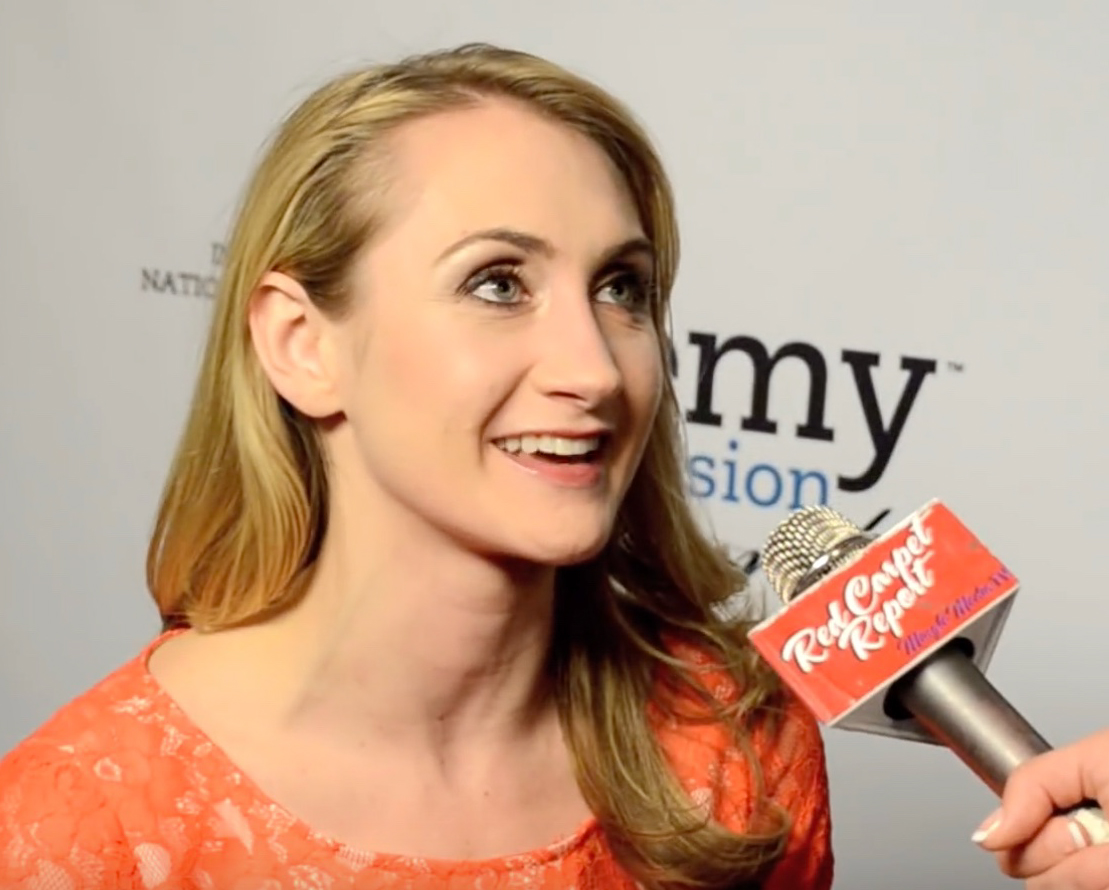 In high school I watched a lot of rom-coms and imagined myself in them. I’d replace Julia Roberts’ face with mine and watch as she zoomed away from fiancés at the altar or sabotaged her best friend’s wedding — all in her wheelchair. I yearned to see someone like me on screen. In college I took my first acting class and have never (well, for the most part) looked back.
In high school I watched a lot of rom-coms and imagined myself in them. I’d replace Julia Roberts’ face with mine and watch as she zoomed away from fiancés at the altar or sabotaged her best friend’s wedding — all in her wheelchair. I yearned to see someone like me on screen. In college I took my first acting class and have never (well, for the most part) looked back.
In the search for acting work, many things are out of our control. When I lived in Los Angeles, I auditioned in creepy alleyways because casting offices weren’t accessible, and I was told I couldn’t play the lawyer because I’m disabled — and then heard I don’t look disabled enough. My skin has thickened over the years, and I’ve learned how to push forward by focusing on what I can control. To help you take your acting to the next level, here are three tips, along with some sage advice from the leading talent agent for actors with disabilities (see Gail Williamson, below).
Develop Your Talent
Whether you study acting in college, take improv or tackle Shakespeare, developing your talent is key. Finding the right class may not happen on your first try. I had a teacher discourage me from enrolling because of my disability, and there were classes I wanted to take but couldn’t because they were held in buildings that were inaccessible. Don’t let this stop you. Research, ask around, audit different classes, and find an environment to learn and grow in that feels right to you.
Christopher Thornton, a para, has worked steadily in TV, film and theater — most recently in the recurring role of Kenny “Shammy” Shamberg on CBS’s reboot of Magnum, P.I. He attributes his success to the training he received at the Stella Adler Academy of Acting and Theatre in Los Angeles, where his favorite classes were Script Breakdown and Script Analysis. “Because that’s where it all starts,” he says. “Having a deep understanding of the material will allow you to make informed choices, to have an opinion. It’s important to bring something to the table so you are not waiting on a director to spoon feed you everything.”
Thornton now teaches at the school and passes on his knowledge to his students. “We gear the classes on how we know the business to be run, so it’s not just how to work as an actor, but also about being prepared and professional, and being directable on set.”
Create Your Own Opportunities
As an actor, it’s easy to feel like you are constantly waiting — waiting for an audition or to hear if you got the part. So I found it extremely gratifying when I started to create my own opportunities. I started by volunteering to help friends with short films they were making. It felt nice to be a part of something, to network, and to learn what goes on behind the scenes. These experiences helped give me the confidence to create my own projects, like my online series, My Gimpy Life.
.
Shannon DeVido — who has spinal muscular atrophy and has appeared on Hulu’s Difficult People, as well as the world premiere of Teenage Dick at The Public Theatre — does improv and stand-up comedy and has a YouTube show called Stare at Shannon, in which she hilariously chronicles how nondisabled people react to disabled people in everyday situations, like grocery shopping.
“The reality is that I don’t get a lot of auditions or roles, so by creating my own work I’m able to show people what I can do,” says DeVido, who is based in Philadelphia. “When we see disabled characters on TV or in movies, they are mostly written from such an able-bodied point of view,” she says. “More often than not, their narratives are pining to not be disabled, or sad, or sick. They’re not normal humans. By creating my own work, I’m regaining control of that narrative and making disabled characters that are realistic and ones I’d want to see. It’s a really fun opportunity to put a stamp in the world.”
DeVido’s advice to others is to just do it. “Get a good camera, or use your phone, or write a blog, or do an open mic, or start an improv group,” she says. “Whatever is best for your creative vision, get your friends together and put your voice out into the world. It’s important. Plus, you never know what can come of it.”
Find Community
A career in acting is a marathon, not a sprint, so having a community to support and encourage you, confide in and create with along the way is vital. These are the friends you’ll meet through acting classes and whose projects you’ll work on, fellow advocates for disability inclusion, mentors and so on.

Tobias Forrest (left) appreciates the community he found through the Easterseals Disability Film Challenge.
.
Tobias Forrest is a quad who has been acting in Los Angeles for the past 15 years, most recently in Freeform’s Good Trouble. He loves the community that has come together around the Easterseals Disability Film Challenge. Created by Nic Novicki, the weekend competition gives registered filmmakers 55 hours to write and produce short films that help change the way we view disability. The winners are announced at a red-carpet ceremony at Sony Pictures, receiving prizes like industry mentorships and production grants.
“Nic’s created a community for disabled artists,” says Forrest. “It doesn’t matter where you live. Once a year you can jump in and be a part of this community and feel involved no matter how far away you are, which is super awesome.”
Making it Work for You
To bring stories and characters to life, to entertain and to effect change, gives me joy and meaning. But even if you work hard and do all the right things, there are still no guarantees. So, identify what inspires and motivates you, keep working on your craft, stay creative, find your people, and live your life. Experience things, take it all in, and interpret it though your art.
Q&A with Diversity Talent Agent
Gail Williamson
Gail Williamson has advocated for the inclusion of performers with disabilities for over 30 years. Today she leads the diversity department at Kazarian/Measures/Ruskin and Associates, seeking out good roles for talented actors with disabilities. Here is some of her advice for aspiring actors with disabilities.
Teal Sherer: Being an actor is tough. There is a lot of rejection, and actors with disabilities face their own unique challenges in this business. Any advice on navigating through it?
Gail Williamson: This is a tough business. If anything else makes you happy, run to it and leave acting behind. But if acting is what you have to do, then you are going to face all sorts of misconceptions, disappointments, discrimination and misunderstanding. Try to keep an open mind, and assume people are doing their best, but they just don’t understand. Kindly teach along the way. Do your best to be the best you at all times. And network in the community of individuals with disabilities so you know others and can stand up for each other. It takes our entire village to make this happen.
TS: Regarding headshots, should actors who use mobility devices, like a wheelchair, crutches or prosthetics, show them in their picture?
GW: When you purchase a Barbie or a G.I. Joe, you want to know what is in the box, and any accessories should be shown on the outside. This is the same for headshots — to the best of your abilities show your accessories. I want to pitch you as diverse. If you just have a headshot and it doesn’t show your wheelchair, I’m not able to sell you well.
TS: Any advice on finding an agent?
GW: Agents can be tough. If you have nice credits and you go to a typical agent, make sure they will submit you on typical roles as well. The only time you should be limited to roles that call for a character with a disability is when you are first getting started. Your agent should be willing to ask the questions: Can the teacher be in a wheelchair? Can the mom be deaf? Can the student be blind? But don’t expect this until you have the tools to make it happen.
** This post was originally published on http://www.newmobility.com/2019/08/so-you-want-to-be-an-actor/



